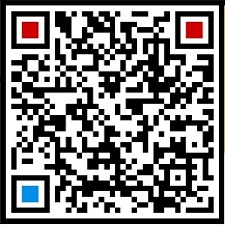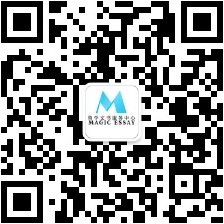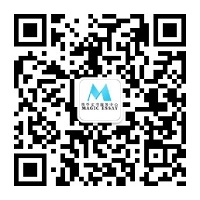留学文书范文|医科|个人陈述|PS|药理学|13
嘉东/2020-01-21/ 分类:个人陈述PS/阅读:
Program Applied: Pharmacology I have much to feel proud of myself. As an oculist for more than nine years, I have helped thousands of patients suffering from visual problems regain their vision. If I continue to go on this way, I will deve ...
Program Applied: Pharmacology
I have much to feel proud of myself. As an oculist for more than nine years, I have helped thousands of patients suffering from visual problems regain their vision. If I continue to go on this way, I will develop into a senior oculist enjoying the respect and wealth that I deserve. However, at this prime stage of career development, I have decided to take a course of action –to seek an advanced degree program at your esteemed university –which will be considered to be “imprudent” for a man of 31 years old. The reason why such a decision might be regarded as “imprudent” because it involves my age, the change in specialty from ophthalmology to pharmacology, and the costs and sacrifices for pursuing an overseas education. But I simply cannot change my idea because I strongly hope that by taking such a step I may attain progress in knowledge and in the value of my life. Actually, I am acting under the guideline of an ancient Chinese axiom that “It is worthwhile to die in the evening if you have learned some knowledge in the morning.” I believe that this ancient axiom has given complete articulation of my present sentiment.
As an oculist with rich professional experience at Guangzhou People Hospital, I am deeply aware of the importance of pharmacology as a basic medical science in providing fundamental theories for the rationalized clinical medication. Pharmacology is a discipline with a most promising future and is presently one of the most dynamic subjects. A science on the effect of drugs on humans and on the mechanism of drug action, pharmacology produces an important impact on medical science as a whole with every single advance it achieves. I once studied the therapeutic effect of Xueshuanton (a kind of Chinese medicine preparation) on a eye problem and the discovery I made surprised me with the therapeutic efficiency that can be achieved through pharmacological mechanism. If I can improve my knowledge of pharmacology and combine it with my clinical practice as an oculist, I can predict that the overall therapeutic effect would be increased considerably.
At present, the development of pharmaceuticals in China is undergoing a strategic transition from mere “copying” to “creation”. The research and development of new pharmaceuticals have changed from “random screening” to “project-oriented” design. Such a trend necessarily requires China to strengthen its own basic research in pharmaceutics and pharmacology. Pharmacological research plays a vital role in promoting the advances in life science. In the field of ophthalmology, how to develop effective medicaments and proper medication for the ophthalmic complications related to diabetes and for the protection of the optic nerves in treating glaucoma will be a major subject and a challenge for the future. It involves the development of medicines in a diversity of fields such as neuroscience and geriatric cardiovascular research. In particular, the clinical pharmacology evolved in recent years has become an applied science that focuses on the study of and the service for the clinical patients. Its primary task is to turn the basic pharmacological theories into clinical medication technology, that is, to translate the pharmacological functions into actual therapeutic effects. It is an extended part of basic pharmacology. This field will constitute the primary focus in my future studies, which is also a major challenge.
However, no challenge is going to daunt me. When I entered the School of Clinical Medicine, Guangdong Medical University, I realized the rigorousness of medical science and the broad knowledge that it encompasses. It is a challenging subject because it poses high demands on medical practitioners in terms of the ability to put theory into practice and problem-solving skills. During my clinical internship, by exercising the knowledge I had acquired in classroom education, I tried to treat various problems of patients. The complicated problems that the patients presented were a formal test of my medical knowledge, my analytical ability and my judgment. I had to find out the underlying cause of their individual problems and provide the most effective prescriptions. Although the School had very strict requirements for its students, although I had to work part-time to earn money to support myself, and although I had to organize and participate in many extracurricular events on the campus, I still managed to concentrate on my internship with extra efforts and obtain a very good rating for my performance during the internship, which laid a solid foundation for my later career.
In the course of my 9-year career, I have worked with responsibility and commitment, reputed for the high quality of the operations I conducted. For my outstanding professional performance, I was the first to be promoted as physician-in-charge among my colleagues who started working at the hospital the same year that I did. Apart from my clinical work, I have also participated in a number of research projects that include: The Use of Mitomycin in Filtrating Glaucoma Operation, The Glaucoma Operation Using Excimer Laser, The Effect of Transmitting Xueshuanton Ion in Eyes, and The Clinical Observation of the BIO LUC Contact Lenses (an American brand). I have attended academic conferences regularly, at which I exchanged my research findings with senior specialists and obtained useful input in terms of the latest developments in the world in the field that I specialize in. I can cite two research papers that I have published as an indicator of my research capability. The first one is entitled A Study of the Toxicological Syndrome of Artificial Lenses (Journal of Practical Medicine, ISSN 1006-5725) and the second Correction of the Simultaneous Prolapse of Tarso and Conjunctiva After the Decurtation of the Levator Muscle of Upper Eyelid (Journal of China Practical Ophthalmology—a state-level core journal, ISSN1003-5079). The latter is a report of an original and effective operation methodology I created in treating complicated post-operation complications. I believe that my research potential is limitless.
A medical professional must not only perform his or her vocational duties but also moral responsibilities because in treating our fellow beings we must do so with heartfelt love and care. Cherishing this belief, I participated in considerably charity activities. I was a member of a program “Vision First--China Action” funded by International Lion Association in which we traveled to remote and poor mountain areas to provided free medical services. I alone conducted 200 operations on people suffering from glaucoma. Also, together with my colleagues, I visited rural areas and investigated the local medical conditions and helped formulate several feasible plans for local medical institutions to make improvement. We also popularized basic ophthalmologic knowledge to the elderly in the local communities and organized activities on the International Eye-Caring Day.
I was bereft of my mother when I was just 13 years old. Compared with my peers, I learned to be independent at an earlier stage. As a person who has been exposed to the reality of human physiological sufferings, I also value genuine human emotions. I think that beginning with my formal education more than a decade ago, my overall past experience has benefited me most in the following aspects: the development of a rigorous scientific mentality, sound research capabilities, creative spirit, comprehensive judgment, and the ability to apply the latest methodologies and technologies. All those serve as important qualifications for me to acquit myself satisfactorily in my future degree program. As a public university in Alberta Province, the University of Alberta has fascinated me with its unparalleled reputation in pharmacology. I believe it will offer me an ideal environment for my further academic pursuit. I am convinced that my prospective degree program is bound to be very fruitful because the fusion between my past educational and career backgrounds and a new academic environment I am going to enter will promote me to generate new concepts. Those new concepts will be very crucial in that only the person with innovativeness will have the greatest chance to excel in this rapidly changing world.
As an oculist with rich professional experience at Guangzhou People Hospital, I am deeply aware of the importance of pharmacology as a basic medical science in providing fundamental theories for the rationalized clinical medication. Pharmacology is a discipline with a most promising future and is presently one of the most dynamic subjects. A science on the effect of drugs on humans and on the mechanism of drug action, pharmacology produces an important impact on medical science as a whole with every single advance it achieves. I once studied the therapeutic effect of Xueshuanton (a kind of Chinese medicine preparation) on a eye problem and the discovery I made surprised me with the therapeutic efficiency that can be achieved through pharmacological mechanism. If I can improve my knowledge of pharmacology and combine it with my clinical practice as an oculist, I can predict that the overall therapeutic effect would be increased considerably.
At present, the development of pharmaceuticals in China is undergoing a strategic transition from mere “copying” to “creation”. The research and development of new pharmaceuticals have changed from “random screening” to “project-oriented” design. Such a trend necessarily requires China to strengthen its own basic research in pharmaceutics and pharmacology. Pharmacological research plays a vital role in promoting the advances in life science. In the field of ophthalmology, how to develop effective medicaments and proper medication for the ophthalmic complications related to diabetes and for the protection of the optic nerves in treating glaucoma will be a major subject and a challenge for the future. It involves the development of medicines in a diversity of fields such as neuroscience and geriatric cardiovascular research. In particular, the clinical pharmacology evolved in recent years has become an applied science that focuses on the study of and the service for the clinical patients. Its primary task is to turn the basic pharmacological theories into clinical medication technology, that is, to translate the pharmacological functions into actual therapeutic effects. It is an extended part of basic pharmacology. This field will constitute the primary focus in my future studies, which is also a major challenge.
However, no challenge is going to daunt me. When I entered the School of Clinical Medicine, Guangdong Medical University, I realized the rigorousness of medical science and the broad knowledge that it encompasses. It is a challenging subject because it poses high demands on medical practitioners in terms of the ability to put theory into practice and problem-solving skills. During my clinical internship, by exercising the knowledge I had acquired in classroom education, I tried to treat various problems of patients. The complicated problems that the patients presented were a formal test of my medical knowledge, my analytical ability and my judgment. I had to find out the underlying cause of their individual problems and provide the most effective prescriptions. Although the School had very strict requirements for its students, although I had to work part-time to earn money to support myself, and although I had to organize and participate in many extracurricular events on the campus, I still managed to concentrate on my internship with extra efforts and obtain a very good rating for my performance during the internship, which laid a solid foundation for my later career.
In the course of my 9-year career, I have worked with responsibility and commitment, reputed for the high quality of the operations I conducted. For my outstanding professional performance, I was the first to be promoted as physician-in-charge among my colleagues who started working at the hospital the same year that I did. Apart from my clinical work, I have also participated in a number of research projects that include: The Use of Mitomycin in Filtrating Glaucoma Operation, The Glaucoma Operation Using Excimer Laser, The Effect of Transmitting Xueshuanton Ion in Eyes, and The Clinical Observation of the BIO LUC Contact Lenses (an American brand). I have attended academic conferences regularly, at which I exchanged my research findings with senior specialists and obtained useful input in terms of the latest developments in the world in the field that I specialize in. I can cite two research papers that I have published as an indicator of my research capability. The first one is entitled A Study of the Toxicological Syndrome of Artificial Lenses (Journal of Practical Medicine, ISSN 1006-5725) and the second Correction of the Simultaneous Prolapse of Tarso and Conjunctiva After the Decurtation of the Levator Muscle of Upper Eyelid (Journal of China Practical Ophthalmology—a state-level core journal, ISSN1003-5079). The latter is a report of an original and effective operation methodology I created in treating complicated post-operation complications. I believe that my research potential is limitless.
A medical professional must not only perform his or her vocational duties but also moral responsibilities because in treating our fellow beings we must do so with heartfelt love and care. Cherishing this belief, I participated in considerably charity activities. I was a member of a program “Vision First--China Action” funded by International Lion Association in which we traveled to remote and poor mountain areas to provided free medical services. I alone conducted 200 operations on people suffering from glaucoma. Also, together with my colleagues, I visited rural areas and investigated the local medical conditions and helped formulate several feasible plans for local medical institutions to make improvement. We also popularized basic ophthalmologic knowledge to the elderly in the local communities and organized activities on the International Eye-Caring Day.
I was bereft of my mother when I was just 13 years old. Compared with my peers, I learned to be independent at an earlier stage. As a person who has been exposed to the reality of human physiological sufferings, I also value genuine human emotions. I think that beginning with my formal education more than a decade ago, my overall past experience has benefited me most in the following aspects: the development of a rigorous scientific mentality, sound research capabilities, creative spirit, comprehensive judgment, and the ability to apply the latest methodologies and technologies. All those serve as important qualifications for me to acquit myself satisfactorily in my future degree program. As a public university in Alberta Province, the University of Alberta has fascinated me with its unparalleled reputation in pharmacology. I believe it will offer me an ideal environment for my further academic pursuit. I am convinced that my prospective degree program is bound to be very fruitful because the fusion between my past educational and career backgrounds and a new academic environment I am going to enter will promote me to generate new concepts. Those new concepts will be very crucial in that only the person with innovativeness will have the greatest chance to excel in this rapidly changing world.
此文书内容来源于网络,若侵犯权益,请及时联系我们!
若需要更多的文书范文也请联系我们!
-
VIP咨询

免费申请/获取文书范文加上方微信
-
微信公众号

更多免费申请信息请关注上方公众号
版权声明 本文仅代表作者观点,不代表本站立场。
本文系作者授权本站发表,未经许可,不得转载。
本文系作者授权本站发表,未经许可,不得转载。
扩展阅读:





